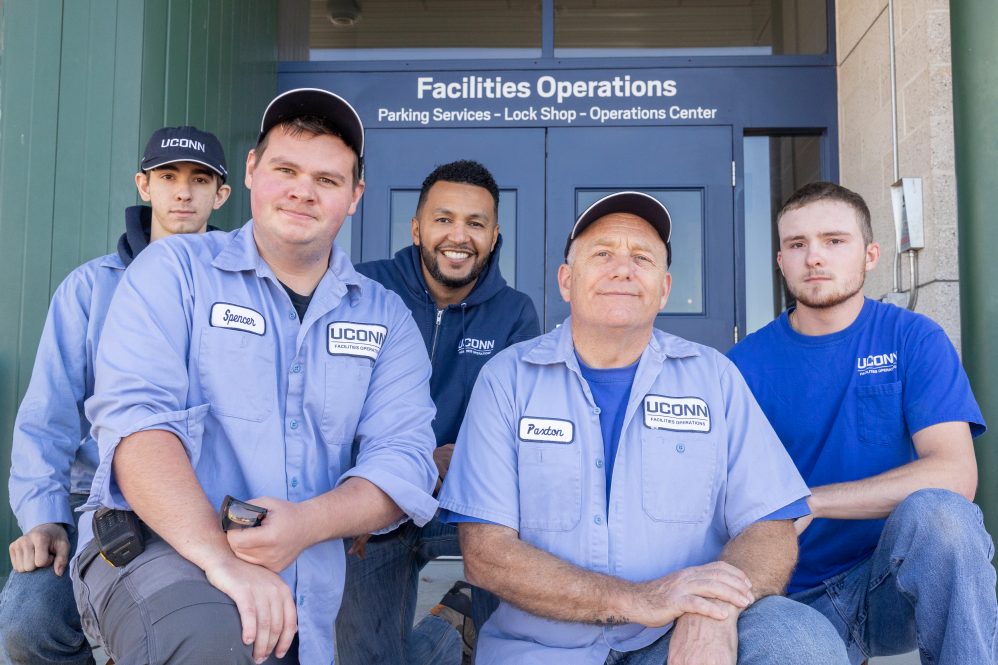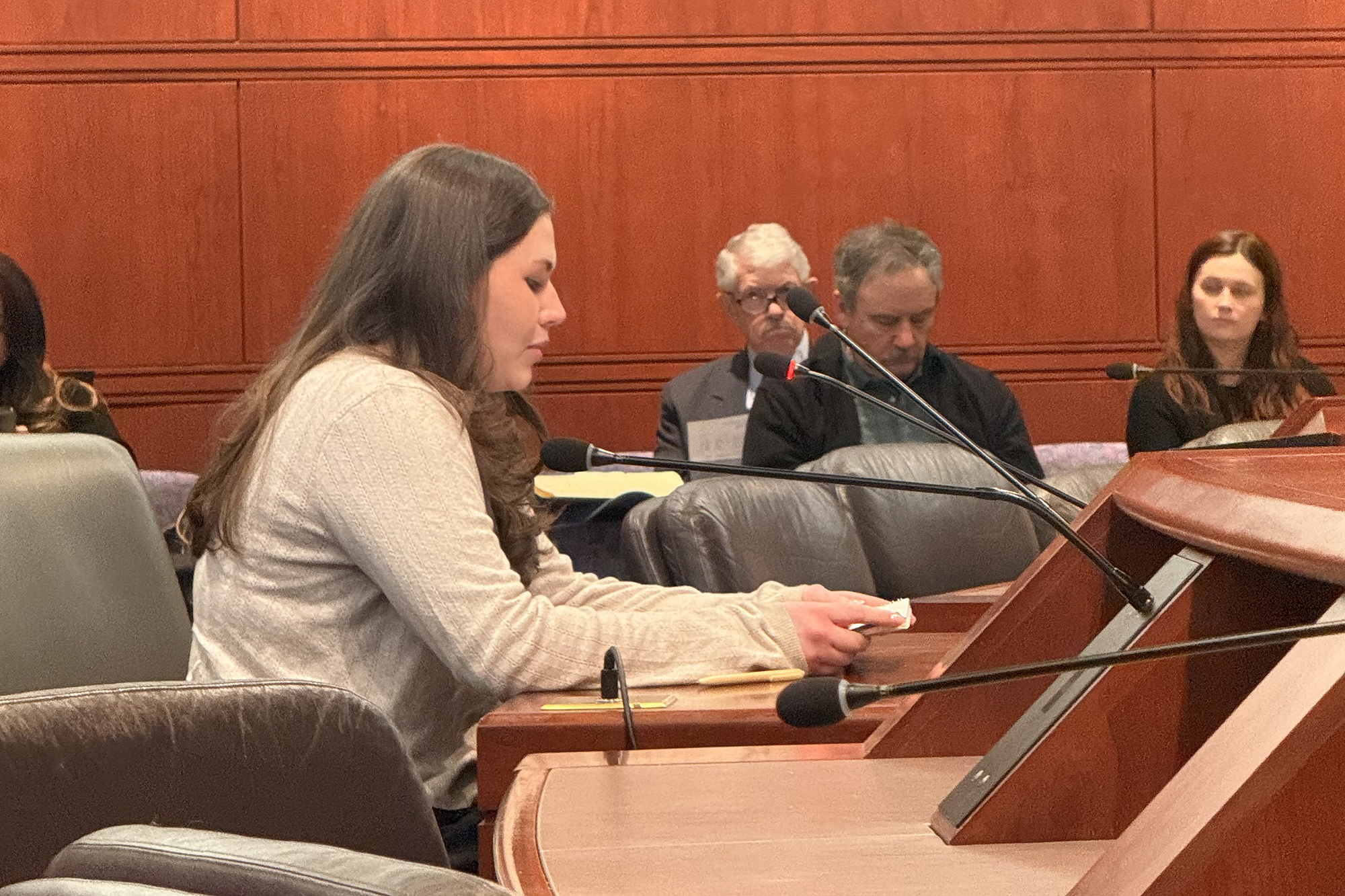The University of Connecticut operates like its own city on a daily basis. Whether it’s the normal business of classes, labs, and meetings, or big events like basketball games or even a Presidential visit, UConn’s Facilities Operations employees are working behind the scenes to support it all.
UConn has a pair of work-based learning programs, one of which brings in students from around the state’s technical high schools, and another which employs UConn students. The goal of each program is to develop future UConn employees and also the workforce for businesses across Connecticut.
There is also a program for current UConn full-time employees in Facilities Operations that have been hired as skilled trades apprentices and are training in fields such as plumbing, electrical, HVACR (heating, ventilation, air conditioning and ventilation), carpentry, roofing, and utilities.
The program provides the training required for these employees to be promoted to the target level of the position and to successfully obtain their license in the specific trades of plumbing, electrical, and HVACR. Facilities Operations also hires power plant operator trainees and water pollution control operator trainees to be trained in the technical positions at the Cogeneration and Waste Water Facilities at UConn.
“There is an important need to be able to have the proper talent to maintain the complex building that we have on all our campuses,” says Assistant Vice President of Facilities Operations Mike Jednak. “We are constantly building and renovating new facilities on campus and they are all very hi-tech. We have our own power plant and we have an entire distribution systems of electricity, plumbing, water and sewer at UConn Storrs. All of that necessitates having skilled, trained labor.”
UConn’s Water Pollution Control Facility is tucked away on the northwest end of campus, and serves a valuable role in the health and function of the entire campus.
Two employees of the facility are water pollution control operators Spencer Mason and Paxton Mallard ’03 (CLAS). Both of them earned their Class 1 Operator Certification from the state Department of Energy and Environmental Protection while working as UConn employees.
“I liken it to be being a type of farmer,” says Mallard, who grew up on the Storrs campus as his mother earned an undergraduate and graduate degree in art history and education in the late 1970s. “We have a herd of bacteria and microorganisms in a 1.8 million gallon tank and we keep the conditions just right to take care of our waste. We manipulate that population to make clean water. It comes in looking horrific and comes out looking like spring water.”
Mason is a graduate of Marine Science Magnet High School in Groton, and a UConn online ad sparked his interest in career of wastewater management.
“Our OIT (Operator in Training) program here at UConn is superior,” says Mason. “You get hands on training and everyone is comfortable answering your questions.”
The recruitment of high school students and UConn students is a key for Facilities Operation to have a solid future employee base and also for the workforce in all of Connecticut.
“Technical high schools are the feeder program,” says Jednak. “These are students who chose to go to a tech school and who graduate already having hours of experience working in one trade or another. We need to continue to tap into that resource and have them work with our licensed trades people while they are still in high school. You can also see a pep in the step of our existing staff when they are sharing their knowledge with these young students. It’s a win-win across the board.”
UConn students can combine an undergraduate degree with real-life experience to make them very attractive in the job market.
“There are so many opportunities for skilled labor here at UConn,” says Jednak. “You have an opportunity to grow and you can become fully-licensed in areas like plumbing and electrical work. You can have a stable and reliable job for a long time and you can have the opportunity to train others and become a leader. That is what we are looking for.”
The entire Facilities Operations area has a pride in making the University function smoothly on a day-to-day basis.
“We all know this is a great educational institution and we all know about our athletic programs,” says Jednak. “What I don’t think people realize is what we do here in Facilities Operations – we run a small city. When you come to work for us, you have the opportunity to be part of an area that does everything from water and sewer, to power and being a full-utility department, but we also clean, and maintain, and mow, and everything in between. We are here for the students and it’s a great opportunity to have an impact on their lives. And now with a heightened push on sustainability, we have the ability to expose the student to the latest technologies out there for conservation and sustainability.”



